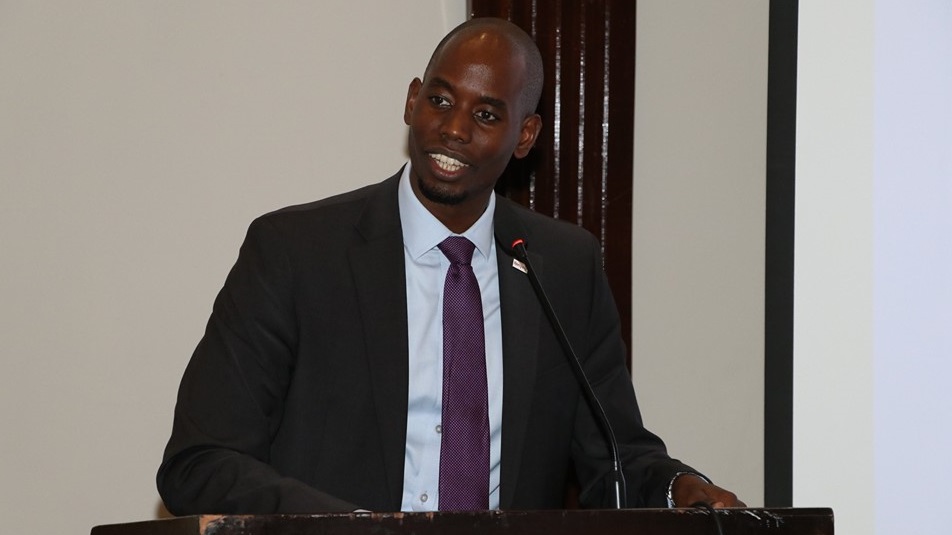We all have them. Those apps we open without thinking. Not because we need anything in particular, but because they feel… safe, in some…
Kenya’s CMA admits three fintechs to regulatory sandbox

Fresh from winning Seedstars Nairobi, Kenyan fintech Pezesha — along with two other fintechs — has been admitted into Kenyan financial regulatory body Capital Markets Authority’s (CMA) regulatory sandbox.
In a statement on its website yesterday, the CMA announced that micro-lending marketplace Pezesha and Innova, a cloud-based analytics platform for investors founded in 2010 by Vincent Ntalami and Conrad Akunga, have been admitted to the authority’s regulatory sandbox.
Pezesha was founded in 2016 by CEO Hilda Moraa. The fintech startup connects lenders with high-quality under-served low income borrowers. The startup last month won the Seedstars Nairobi pitch (see this story).
The three fintechs are the first entities to be admitted to Kenya’s new regulatory sandbox
A third fintech firm admitted has elected to remain anonymous, during its three months test period, except to its closed group of test subjects, an option provided by the company to the authority, the CMA said.
First fintechs to be admitted to sandbox
The three fintechs are the first entities to be admitted to the sandbox, following the approval of the Regulatory Sandbox Policy Guidance Note by the authority in March.
The authority said in the same statement that since the approval of the guidance note it has received several applications from fintech firms seeking to be admitted to its regulatory sandbox.
The authority said Innova Limited has been approved to test its cloud-based data analytics platform designed for use by investors, fund managers, custodian banks, actuaries, pension administrators and regulators.
The approval restricts the testing period to 12 months, the authority added.
It said Pezesha has been approved to test an internet-based crowdfunding platform through which investors can provide loan facilities structured as loans for small and medium-sized enterprises (SMEs). The approval also restricts the testing period to 12 months.
‘Looking to admit five fintechs by 2023’
CMA chief executive Paul Muthaura (pictured above) said in the same statement that both Innova and Pezesha will be required to update the authority on milestones achieved, challenges faced and mitigation measures implemented in line with the test plans submitted to the CMA during the application process.
“The regulatory sandbox allows live testing of innovations under a less onerous regulatory regime and is expected to attract fintech companies and existing capital markets licensees to test the application of technology to financial services,” he said.
He added the authority aims to admit five firms to the regulatory sandbox by 2023.
Minimum requirements specified
Those admitted to the regulatory sandbox must comply with minimum regulatory requirements prescribed by the guidance note — such as submission of test plans, which outline key test objectives, testing metrics, performance indicators, and safeguard and remedial measures for test clients.
The guidance note specifies that the authority can revoke or suspend an approval to participate in the regulatory sandbox at any time before the end of the test period and can take enforcement action against a participant in breach of the regulatory requirements.
Upon exit from the sandbox, participants could be granted a license or approval to operate in Kenya subject to compliance with existing legal and regulatory requirements.
The authority may however decide to grant permission to an applicant to operate in Kenya subject to compliance with the terms of a letter of no objection.
Muthaura said where there is need for a broader legal or regulatory reform, the authority may decide to adopt new regulations, guidelines or notices pursuant to Section 12 and 12A of Kenya’s Capital Markets Act, based on insights gained from the regulatory sandbox test.
A denial of permission to operate in Kenya under prevailing legal and regulatory requirements may also be issued, he added.
Muthaura noted that at minimum, sandbox applicants need to be companies incorporated in Kenya, or existing licensees of the Authority or other capital markets regulators.
Fintech firms are assessed for admission based on their intent to offer innovative products, solutions or services with the potential to deepen Kenya’s capital markets following successful exit from the sandbox.
The regulatory sandbox will help the authority to continuously improve its understanding of emerging technologies as well as the risks and opportunities that the innovations portend for investors, financial institutions and the regulator. The insights from the tests allow for a more evidence-based approach to regulation.
The CMA specified that the regulatory sandbox is not an incubation centre, physical or virtual space. “It is not applicable for proposed products, services or business models that are already clearly addressed under existing laws and regulations,” it stressed.
Featured image: Capital Markets Authority (CMA) chief executive Paul Muthaura (Facebook)

